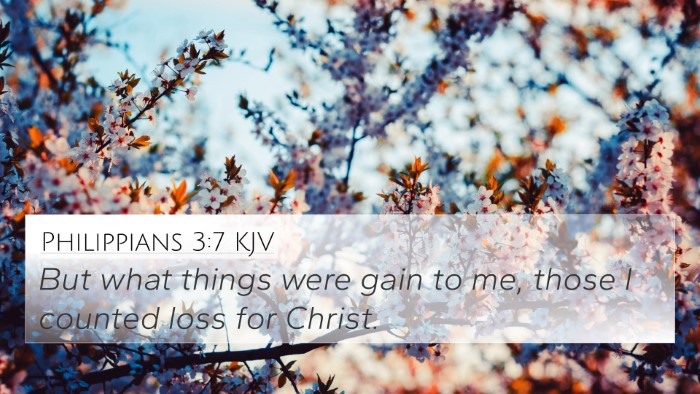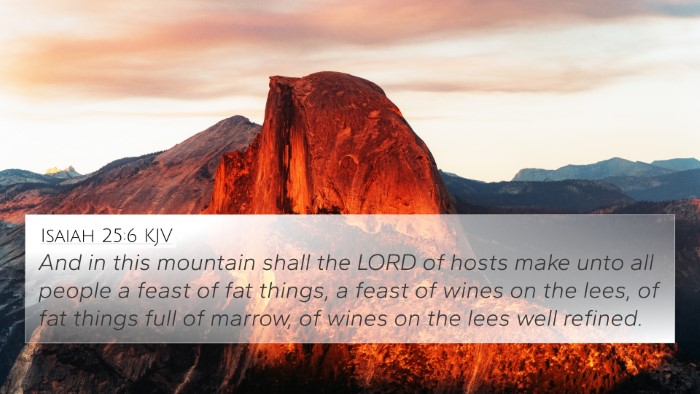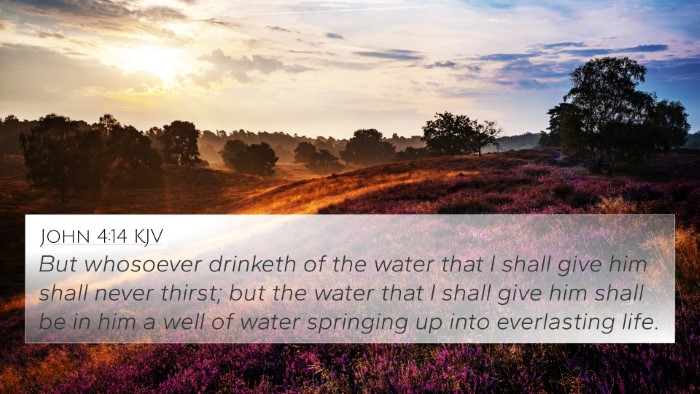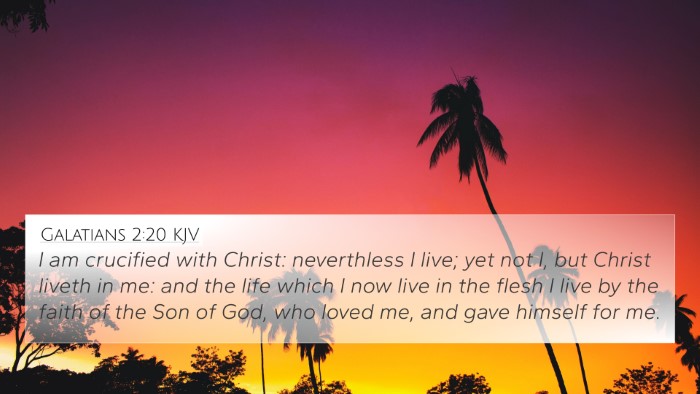Understanding John 6:54
John 6:54 states: "Whoever eats my flesh and drinks my blood has eternal life, and I will raise them up at the last day."
This verse is rich in theological implications and has been the subject of extensive commentary throughout church history. To provide a comprehensive understanding, we will delve into insights from influential public domain commentators like Matthew Henry, Albert Barnes, and Adam Clarke.
Verse Meaning
The phrase "eats my flesh and drinks my blood" symbolizes the belief in the sacrificial death of Christ and the necessity of spiritual communion with Him. This communion is not merely a physical act but an intimate and personal relationship with Jesus, vital for eternal life.
Insights from Matthew Henry
Matthew Henry emphasizes the profound depth of this declaration, noting the significance of "eating" and "drinking" as metaphors for faith and participation in the benefits of Christ's sacrifice. He suggests that this verse reflects the idea of sustenance—just as physical food sustains the body, faith in Christ sustains the soul.
Insights from Albert Barnes
Albert Barnes underlines the spiritual nature of the verbs "eat" and "drink," which indicate that believers must continually partake in Christ's life through faith. Barnes highlights that the promise of eternal life and resurrection on the last day is contingent upon this act of faith and trust in Jesus as the Savior.
Insights from Adam Clarke
Adam Clarke provides detailed exposition, noting how the phrase points to the Last Supper and the institution of the Eucharist. He posits that Christ's body and blood represent the new covenant, where believers are invited to express their faith through partaking in communion, thus affirming their unity with Christ.
Bible Cross-References
- Matthew 26:26-28: This passage describes the Last Supper, where Jesus institutes the communion of His body and blood.
- John 3:16: Highlights the promise of eternal life for those who believe in Christ.
- John 14:6: Jesus identifies Himself as the way, the truth, and the life, indicating that belief in Him is essential for eternal life.
- 1 Corinthians 11:23-26: Paul's account of the Lord's Supper emphasizes the significance of remembering Christ's sacrifice.
- Hebrews 9:22: Discusses the necessity of blood for the atonement of sins.
- Romans 6:5: Talks about the believer’s union with Christ in death and resurrection, pointing to the transformative power of faith.
- Revelation 20:12-15: Describes the final resurrection and judgment, relevant to Jesus’ promise of raising believers at the last day.
Connections with Other Scripture
The emphasis on eating and drinking Christ’s flesh and blood draws clear connections between various parts of scripture, demonstrating a cohesive biblical theology concerning salvation, communion, and eternal life. Through this lens, we can better understand how different verses complement and reinforce one another, forming a robust framework of Christian doctrine.
Connecting Themes
- Thematic Unity:** The theme of spiritual nourishment is prevalent. For example, John 4:14 speaks of living water that leads to eternal life.
- Covenantal Language:** Jeremiah 31:31-34 discusses a new covenant, which ties into the discussion of Christ’s body and blood.
- Faith and Assurance:** Both John 6:40 and 1 John 5:13 affirm the believer's assurance of eternal life through faith in Christ.
The Importance of This Verse
This verse serves as a pivotal point in Christian doctrine, highlighting the necessity of faith in the life and sacrifice of Jesus Christ for salvation. It underlines the integral nature of communion, not only as a ritual but as a daily spiritual practice that nurtures the believer's faith.
Tools and Methods for Cross-Referencing
To deepen understanding and study the interconnectedness of scripture, various tools and methods can be employed:
- Bible Concordance: Utilize resources that list verses in alphabetical order to find related scriptures quickly.
- Bible Cross-Reference Guide: These guides offer structured insights into how verses relate to one another thematically.
- Cross-Reference Bible Study: Engage in a study method that focuses on comparing verses to draw deeper theological conclusions.
Conclusion
In conclusion, John 6:54 is a profound verse that encapsulates the essence of Christ's promise of eternal life through faith. By examining this verse in conjunction with various commentators and cross-references, believers can gain a fuller understanding of its meaning and implications. This understanding emphasizes the importance of communion with Christ and the transformative power of His sacrifice, enriching the believer’s faith and commitment to their spiritual journey.













